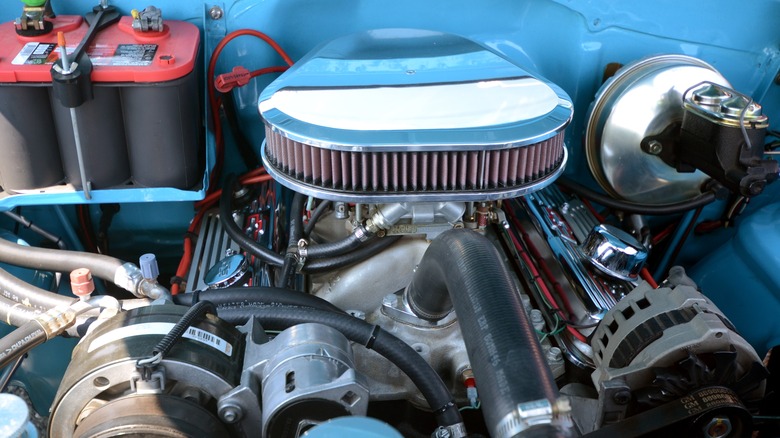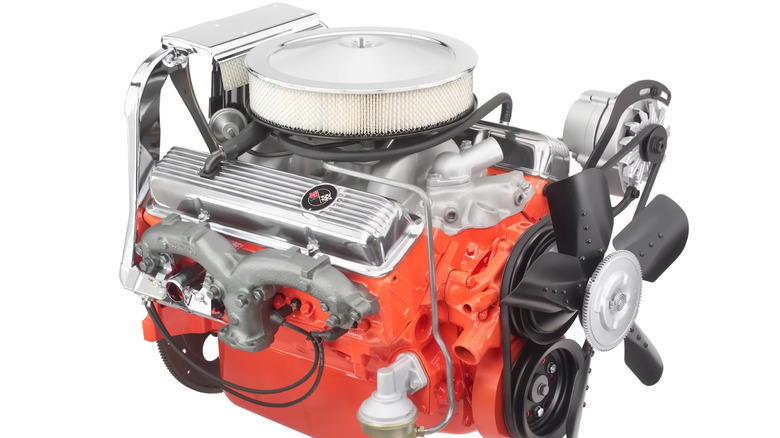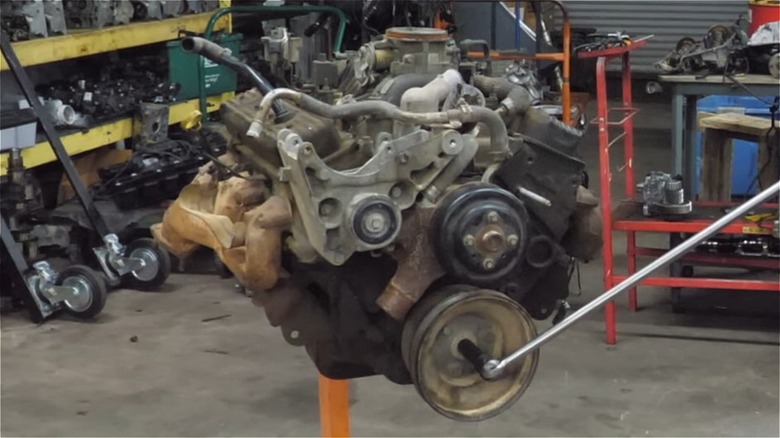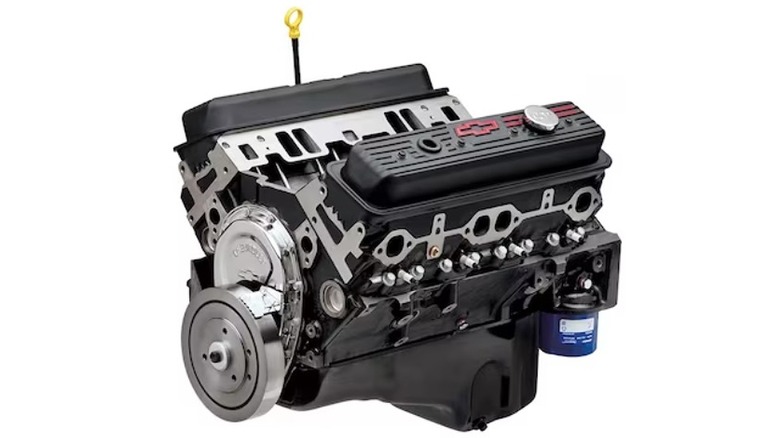3 Affordable Chevy Engines That Deliver Impressive Power With Mods
When starting a project vehicle, there are several considerations to take into account, such as the complexity of the build, costs, and parts availability. Unless you happen to have several thousand dollars burning a hole in your pocket, choosing a budget engine might be prudent. However, just because an engine is affordable, doesn't mean it shouldn't provide some healthy performance — especially with the addition of modifications.
There are some great economical Chevy engines that offer reliable performance, and the Chevy small block is among the most popular engines for classic car engine swaps. Not only are these engines inexpensive, but you can add some performance enhancements without obliterating your bank account in the process.
The most cost-effective options are all small-block, like the Chevy Gen I 350, the 5.7L Vortec, and the SP350/357, Chevy's successor to their wallet-friendly HO crate engine. Affordable modifications that can boost output include an enhanced dual-plane intake manifold, a hydraulic roller camshaft, aluminum cylinder heads, a premium distributer and performance tuning. Of course, these are just a few of the ways to get more horsepower out of your car with aftermarket modifications.
Gen I 350
Considered by many to be one of the most widely available engines, spanning from the '50s through the '90s, the Gen I Chevy 350 small-block V8 is a great choice for your project. The LT-1 is considered among the best years for the Chevy 350 V8 engine. Since General Motors made so many units over the years, you may be able to source one from a junkyard on the cheap, but it could require quite a bit of work, depending on the condition of the engine.
Alternatively, you can purchase a crate version, but prices will range between just over $3,000 to well above $7,000, dependent on what is included. Several years ago, MotorTrend got ahold of a Gen I 350, installed it under the hood of a Chevy Nova, and added some modifications achieving more than 360 horsepower.
There are many excellent performance modifications you can make to this classic engine, but some squarely land on the pricier side. More cost-effective add-ons include a dual-plane intake manifold which offers superior combustion mixtures for added power and retails for under $300. An HEI distributor can make a noticeable difference in the Gen I 350, and provide superior ignition.
L-31 Vortec V8
The Vortec engine was launched in the late '90s and includes several variants, but this small-block V8 is still a solid option for project builds. A 1996-2000 production 350-cubic inch Vortec can produce 255 horsepower with a healthy 330-pound feet of torque. The crate option runs under $5,000, although that version doesn't include all the components and will require additional equipment to buy.
There are a few great and relatively cheap ways to enhance an L-31 Vortec, which include a hydraulic roller camshaft and tuning. An aftermarket hydraulic roller camshaft can provide torque at a wider range of RPM. Another fantastic way to squeeze some more output from your Vortec is to have it performance tuned. You can take it to a shop that specializes in this service, or you can even send in your PCM via the mail, and have a service technician customize settings and mail it back to you.
SP350/357 crate engine
The SP350/357 is a crate engine from GM, that is a continuation of their popular HO crate engine that includes some upgrades. For those unfamiliar, here is everything you should know about crate engines. A bit more expensive than some of the other options, the base version retails for over $6,000, but you can also opt for the deluxe or turn-key variants rated at 357 horsepower and 407-pound feet of torque for additional cost. Depending on the version you select, you can equip the engine with a dual plane intake manifold, hydraulic roller camshaft, and aluminum cylinder heads to efficiently boost performance.
Swapping out the cast iron cylinder heads for a high-quality aftermarket aluminum version offers a few benefits. First, the reduction in the weight of the material going from cast iron to lighter aluminum, reduces the amount of load the engine needs to power. Secondly, aluminum cylinder heads can also reduce heat through superior dissipation improving engine compression.



